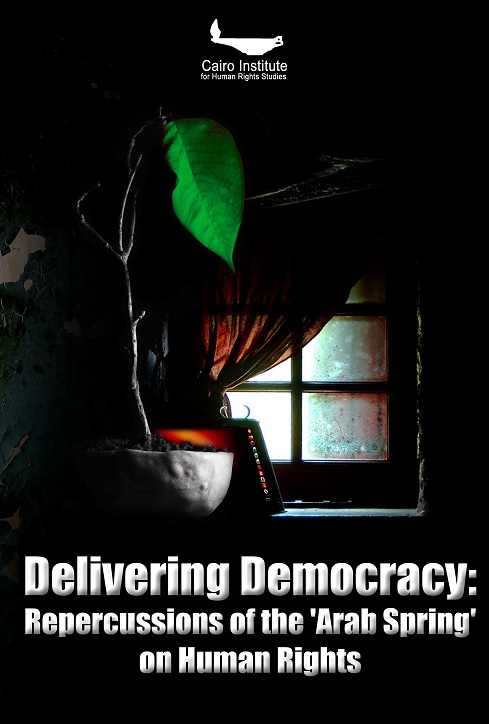This report evaluates the situation of human rights in Egypt and 12 other Arab countries, describing the battle for the “Arab Spring” that continues to be waged on three fronts: between the revolutionaries and remaining members of the old regimes, between secularists and those who call for the establishment of a religious state, and between various actors of the international community. The context in which this struggle is taking place has become even more oppressive since 2011, as is clearly the case in both the Arab countries which saw the fall of old regimes and in those which still aspire to catch this wave of democratic change.
Furthermore, the report records how some parties have resorted to the use of violence in response to repression exerted either by the government or by supporters of the new regimes. Also included is an analysis of the role of the Arab League during the last year and the positions it has adopted regarding the radical changes taking place in the many Arab countries, along with a detailed reading on the crisis facing the chances for transitional justice in the context of the Arab Spring, using Egypt as a case study of of one country in which significant challenges have obscured changes for establishing transitional justice mechanisms and for ensuring a clean break with the repressive state practices of the past.
The report also devotes a full chapter, entitled “Tyranny of the Majority: Islamists and the Erosion of Human Rights,” to evaluating the performance of Islamists since coming to power from a perspective of universal human rights standards. This chapter considers the positions, programs, and practices of the Muslim Brotherhood and its political party in Egypt, the Freedom and Justice Party, other Salifist parties such as the Nour Party in Egypt, and the Ennahda movement in Tunisia.
Share this Post


